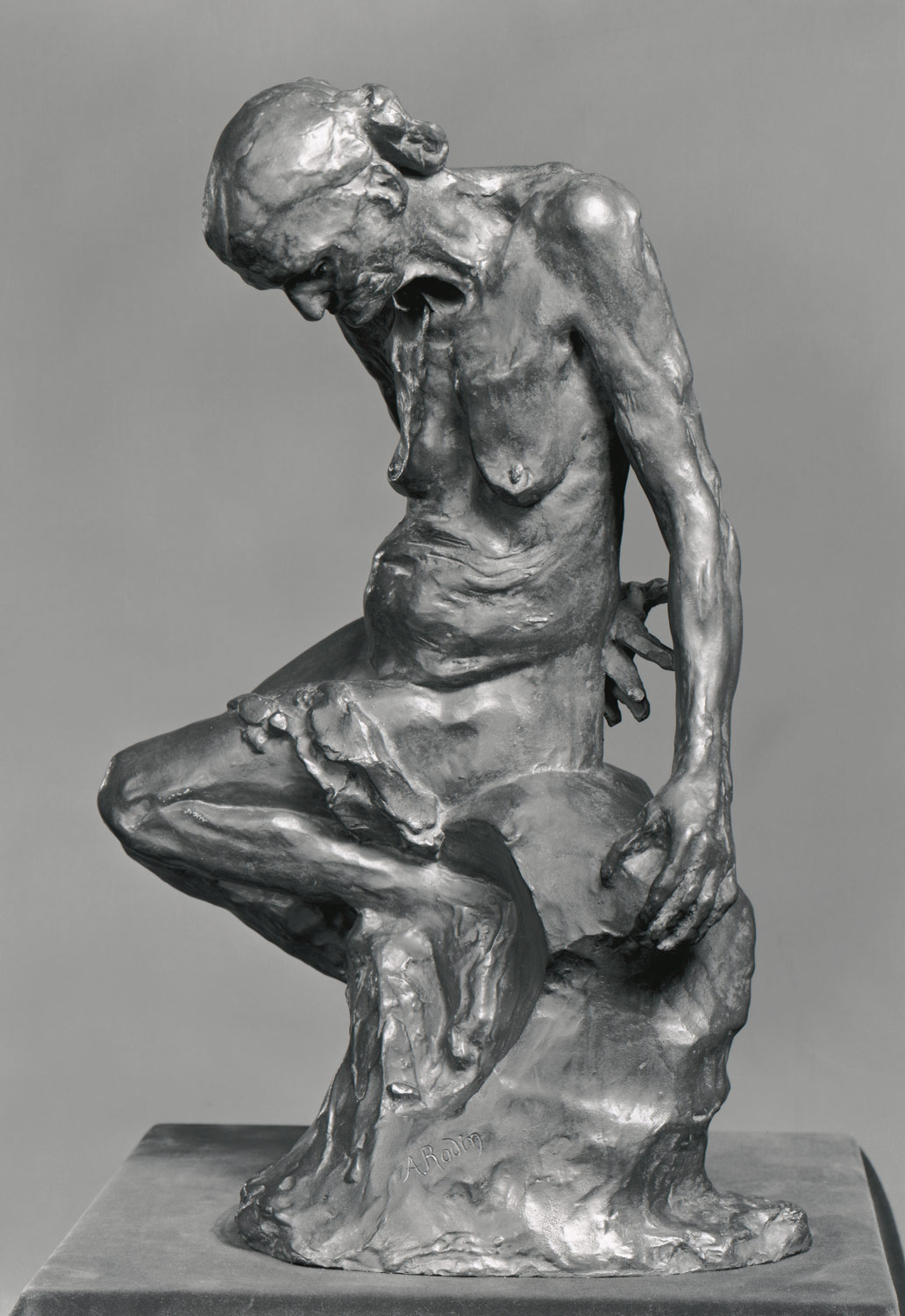Lies
Stan Rogers
At last the kids are gone now for the day.
She reaches for the coffee as the school bus pulls away.
Another day to tend the hous and plan
For Friday at the Legion when she's dancing with her man.
Sure was a bitter winter but Friday will be fine,
And maybe last year's Easter dress will serve her one more time.
She'd pass for twenty-nine but for her eyes.
But winter lines are telling wicked lies.
All lies.
All those lines are telling wicked lies.
Lies all lies.
Too many lines there in that face;
Too many to erase or disguise;
They must be telling lies.
Is this the face that won for her the man
Whose amazed and clumsy fingers put that ring upon her hand?
No need to search that mirror for the years.
The menace in their message shouts across the blur of tears.
So this is Beauty's finish. Like Rodin's "Belle Heauimiere",
The pretty maiden trapped inside the ranch wife's toil and care.
Well, after seven kids, that's no surprise,
But why cannot her mirror tell her lies.
All lies.
All those lines are telling wicked lies.
Lies all lies.
Too many lines there in that face;
Too many to erase or disguise;
They must be telling lies.
Then she shakes off the bitter web she wove,
And turns to set the mirror, gently, face down by the stove.
She gathers up her apron in her hand,
Pours a cup of coffee, dripps Carnation from the can,
And thinks ahead to Friday, 'cause Friday will be fine!
She'll look up in that weathered face that loves her's, line for line,
To see that maiden shining in his eyes
And laugh at how her mirror tells her lies.
All lies.
All those lines are telling wicked lies.
Lies all lies.
Too many lines there in that face;
Too many to erase or disguise;
They must be telling lies.
Note: Auguste Rodin (French, 1840-1917) was sculpter, who created "The Old Courtesan":

Also called She Who Was Once the Helmet-Maker's Beautiful Wife (Celle qui fut la belle heaulmiere), a title taken from the poem "Les Regrets de la Belle Heaulmiere" by Francois Villon (1431-ca. 1463), this sculpture derives from a bas-relief on the lower part of the left pilaster of The Gates of Hell. It is one of the many figures that Rodin extracted from the model for the monumental portal and reworked as individual sculptures to be purchased by collectors. The subject for this figure was an Italian woman who had once been a professional model. Rodin used her aged body for several studies and for groups of figures, as well as for this starkly realistic sculpture. In the Paris Salon of the Societe Nationale des Beaux-Arts in 1890, it was called simply Old Woman (Vielle femme), suggesting that both titles, The Old Courtesan and She Who Was Once the Helmet-Maker's Beautiful Wife, may have been fanciful afterthoughts.
Le Testament: Les Regrets De La Belle Heaulmiere
By chance, I heard the belle complain,
The one we called the Armouress,
Longing to be a girl again,
Talking like this, more or less:
'Oh, old age, proud in wickedness,
You've battered me so, and why?
Who cares, who, for my distress,
Or whether at all your blows I die?
You've stolen away that great power
My beauty ordained for me
Over priests and clerks, my hour,
When never a man I'd see
Would fail to offer his all in fee,
Whatever remorse he'd later show,
But what was abandoned readily,
Beggars now scorn to know.
Many a man I then refused --
Which wasn't wise of me, no jest --
For love of a boy, cunning too,
To whom I gave all my largesse.
I feigned to him unwillingness,
But, by my soul, I loved him bad.
What he showed was his roughness,
Loving me only for what I had.
He could drag me through the dirt,
Trample me underfoot, I'd love him,
Break my back, whatever's worse,
If only he'd ask for a kiss again,
I'd soon forget then every pain.
A glutton, full of what he could win,
He'd embrace me -- with him I've lain.
What's he left me? Shame and sin.
Now he's dead, these thirty years:
And I live on, old, and grey.
When I think of those times, with tears,
What I was, what I am today,
View myself naked: turn at bay,
Seeing what I am no longer,
Poor, dry, meagre, worn away,
I almost forget myself in anger.
Where's my smooth brow gone:
My arching lashes, yellow hair,
Wide-eyed glances, pretty ones,
That took in the cleverest there:
Nose not too big or small: a pair
Of delicate little ears, the chin
Dimpled: a face oval and fair,
Lovely lips with crimson skin?
The fine slender shoulder-blades:
The long arms, with tapering hands:
My small breasts: the hips well made
Full and firm, and sweetly planned,
All Love's tournaments to withstand:
The broad flanks: the nest of hair,
With plump thighs firmly spanned,
Inside its little garden there?
Now wrinkled forehead, hair gone grey:
Sparse eyelashes: eyes so dim,
That laughed and flashed once every way,
And reeled their roaming victims in:
Nose bent from beauty, ears thin,
Hanging down like moss, a face,
Pallid, dead and bleak, the chin
Furrowed, a skinny-lipped disgrace.
This is the end of human beauty:
Shrivelled arms, hands warped like feet:
The shoulders hunched up utterly:
Breasts ....what? In full retreat,
Same with the hips, as with the teats:
Little nest, hah! See the thighs,
Not thighs, thighbones, poor man's meat,
Blotched like sausages, and dried.
That's how the bon temps we regret
Among us, poor old idiots,
Squatting on our haunches, set
All in a heap like woollen lots
Round a hemp fire men forgot,
Soon kindled, and soon dust,
Once so lovely, that cocotte...
So it goes for all of us.